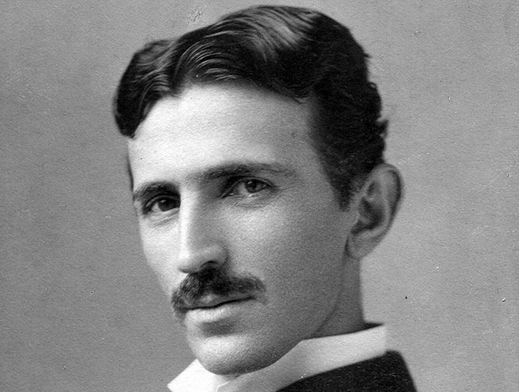
"Where the altruistic utopian designs of Buckminster Fuller provided an ideal for the first wave of Silicon Valley pioneers (a group including computer scientist and philosopher Jaron Lanier and Wired editor Kevin Kelly), later entrepreneurs have hewn closer to the principles of brilliant scientist and inventor Nikola Tesla, who believed, as he told Liberty magazine in 1935, that "we suffer the derangement of our civilization because we have not yet completely adjusted ourselves to the machine age.""
"We would be freed from onerous labor by automation and the creation of "a thinking machine," he said, over a decade before the invention of the computer. Tesla did not anticipate the ways such machines would come to master us, even though he cannily foresaw the future of wireless technology, computing, and telephony, technologies that would radically reshape every aspect of human life."
Certain historical figures functioned as precursors for digital-age techno-visionaries. Buckminster Fuller’s altruistic utopian designs inspired early Silicon Valley pioneers such as Jaron Lanier and Kevin Kelly. Later entrepreneurs aligned more with Nikola Tesla’s principles, emphasizing human mastery of machines. Tesla forecasted liberation from onerous labor through automation and the invention of a “thinking machine,” and he anticipated wireless technology, computing, and telephony decades ahead. Tesla also predicted instant, pocket-based communication equipment. Tesla did not foresee the ways machines might come to master humans even as those technologies reshaped virtually every aspect of life.
Read at Open Culture
Unable to calculate read time
Collection
[
|
...
]